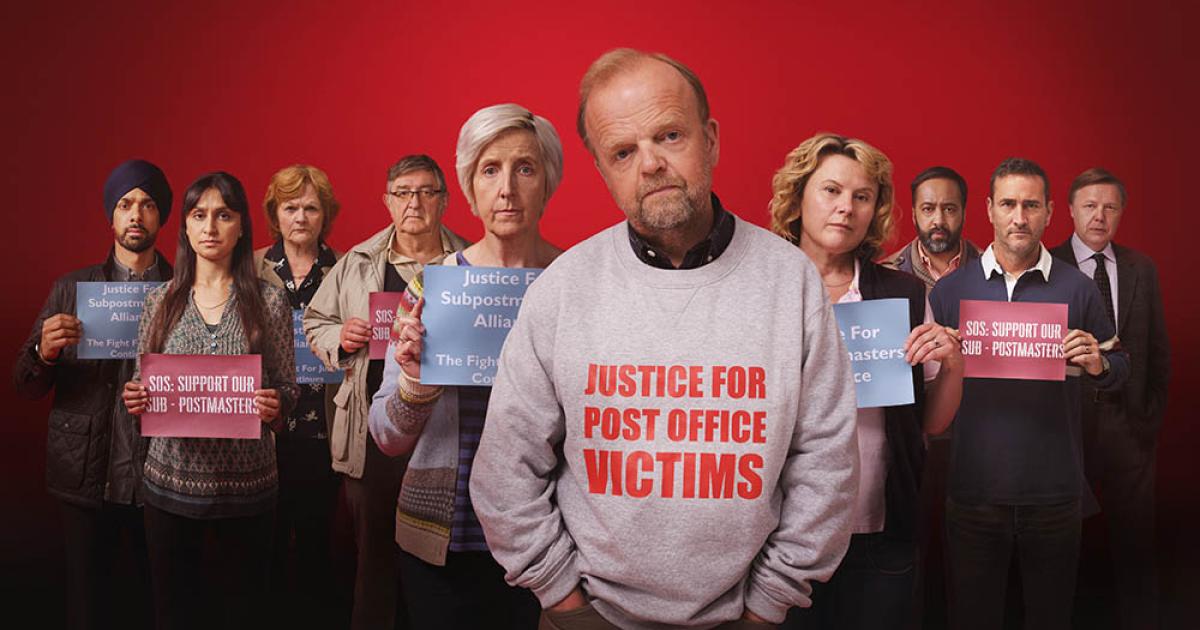REVIEW: ITV’s dramatization of the Post Office scandal seen on average by around 10 million viewers, has galvanized the Government to take action – and has destroyed the reputation of the management of the Post Office and the Japanese company Fujitsu. The reviews have been near unanimous in agreement in both their praise in raising the injustice meted out to hundreds of postmasters and also for James Strong’s direction and Gwyneth Hughes’ script.
It’s a very British drama about the ordinary decency of people who come up against the corporate suits protected by their lawyers, status and money. Initially the subject appears on the face of it an industrial dispute between the postmasters and the big wigs in one of the country’s largest, most historic and important institutions. The Post Office’s very name is frequently held up as sacrosanct by its defenders in the programme. But through the four part series bit by bit, scene by scene, argument after argument it’s unassailable reputation is trashed, until in the words of the defence council, ‘there was a pile of ashes where the Post Office used to be.’
We think we know the story and we know who the villains are but through the eyes of Alan Bates the unravelling of the scandal, the obfuscation, the lies and the injustices reveal those who lied were not just Paula Vennells, Angela van Den Bogerd, Gareth Jenkins and Tim Parker. There were legions of people who knew they were doing wrong but were more interested in keeping their jobs obeying their line managers and bosses, more interested in their salaries and careers. Some appeared to be empowered to become bullies and law breakers. They were just as guilty as the usual suspects that includes the Government ministers who were in charge of the Post Office and the executives of Fujitsu.
The programme begins slowly but deftly moves the drama along with a wide cast of characters drawn from real life in brilliantly filmed sequences that are familiar to anyone who has been in a Post Office. The duplicity and hypocrisy of Vennells and van Den Bogerd are exposed, as are the massive fees of the lawyers, while the honesty of the Post Masters and their families and friends are shown for their inner decency – and how society is the better for them. There’s tragedy, there’s the depiction of mental breakdown and of frustration – all sensitively handled – along with some beautifully shot set pieces from the hills of Wales to the streets of London. And above all the portrayal of Alan Bates by Toby Jones and his partner Suzanne Sercombe played by Julie Hesmondhalgh who were caught up in the Kafka-esque nightmare were played with a sublety and a realism that convinced.
So what now? Those at fault are either keeping their heads down, denying they knew or pretending it didn’t involve them. One has handed back her CBE – but as one of the Post Masters shouted to the press outside the court at the end of the drama said, “I’ve been to prison, it doesn’t do any good, hit them in their pockets, take their money, it’s the only thing they understand.” And judging by the expensive offices, the smart suits and flash cars that furnish their lives he has a point.
Harry Mottram

